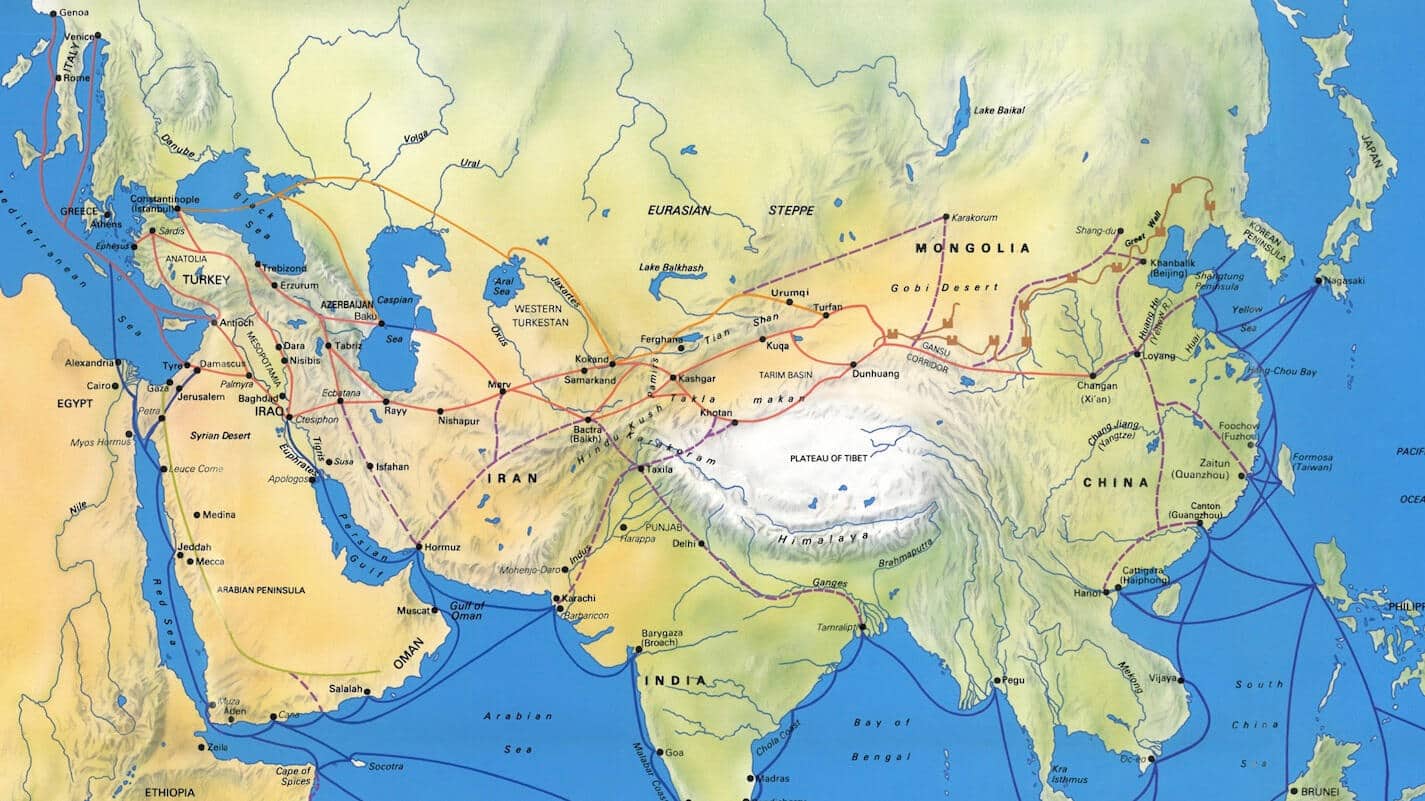“Silk Road” refers to the great trade routes that originated in China and spread westward across Central and South Asia, the Middle East, and into Mediterranean Europe.
From the 2nd century B.C.E. until the 15th century C.E. the world’s dominant land routes adjoined China to Syria and connected with sea routes to create an East-West corridor linking Japan with Italy. These transcontinental caravans resulted not only in trade, of which silk was an important commodity, but also in tremendous cultural interchange among the peoples of the regions; interactions that fostered the sharing of ideas and the fusion of art and aesthetics.
The Silk Road spawned rich traditions of storytelling, primarily oral narrative and epic poetry. As we ourselves are storytellers, we find the Silk Road to be both a geographic polestar and a guiding metaphor for our polycultural worldview.
If we were to trace on a contemporary map the many trade routes connected to the Silk Road, the modern nation-states of this vast territory would comprise some two-thirds of the world’s population. From a political perspective, the Silk Road represents a model of interdependence and connectivity that united diverse peoples across geographically contiguous regions. This history is particularly important to us because it pre-dates the advent of European colonialism and imperialism, with its injurious strategies of conquer, divide, rule, and exploit.
The Silk Road also provides several metaphors within a 21st-century diasporic context. As a historic transportation hub and trading center, we consider Chicago to be the capital of the North American Silk Road, a dynamic convergence of waterways, land bridges, diverse peoples, and world-altering innovation. In a similar vein, internet technology represents today’s global Silk Road, an unparalleled crossroads of ideas, stories, information, and beliefs.
We embrace the Silk Road as a living historical heritage and model of the anti-colonial and anti-Orientalist politics that define our company’s aesthetic. May its legacy continue to thrive and evolve at Silk Road Cultural Center.

